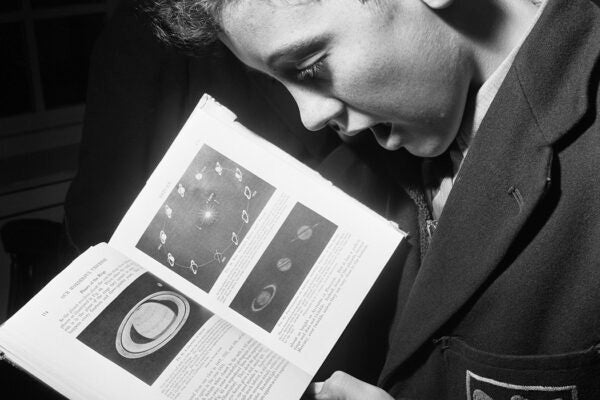Science Lit for Kids Holds a Mirror Aloft
Over decades, books that rouse children’s interest in the natural world have morphed in style and approach—an evolution reflective of tectonic societal change.
Tolstoy’s Christian Anarchism
A fateful visit to a market in Moscow entirely upended Tolstoy’s view on life and society—and changed the trajectory of his work and purpose.
The Legacy of Asilomar
The 1975 scientific conference laid the ground rules governing the next half century (and counting) of biological research and public scrutiny of it.
All Grown Up: JSTOR Turns Thirty
What started out as an experiment in digitizing under-used scholarship blossomed into an invaluable online educational resource for students and faculty alike.
Science in War, Science in Peace: The Origins of the NSF
The 1950 establishment of a federal agency devoted to space, physics, and more belied a cross-party consensus that such disciplines were vital to national interest.
Refugee Lit Stakes Its Worthy Claim
Peter Sloane’s new study examines the narratives put forth by asylum seekers striving to reclaim their stories from mainstream media and political discourse.
A Hundred Years of Mrs. Dalloway
An exemplar of modernism, Virginia Woolf's revolutionary novel explored ideas—psychology, sexuality, imperialism—that roiled the twentieth century.
Expanding the Possibilities for Preservability
A new tool from NYU Libraries helps authors, publishers, and preservation specialists assess the preservability of evolving digital scholarship.
Ronald Reagan’s Guiding Light
Having inherited his mother’s beliefs, Reagan was ever faithful to the Disciples of Christ, whose tenets were often at odds with those of the GOP.
A Gold Rush of Witnesses
Letters, diaries, and remembrances shared on JSTOR by University of the Pacific reveal the hardships of day-to-day life during the California Gold Rush.









